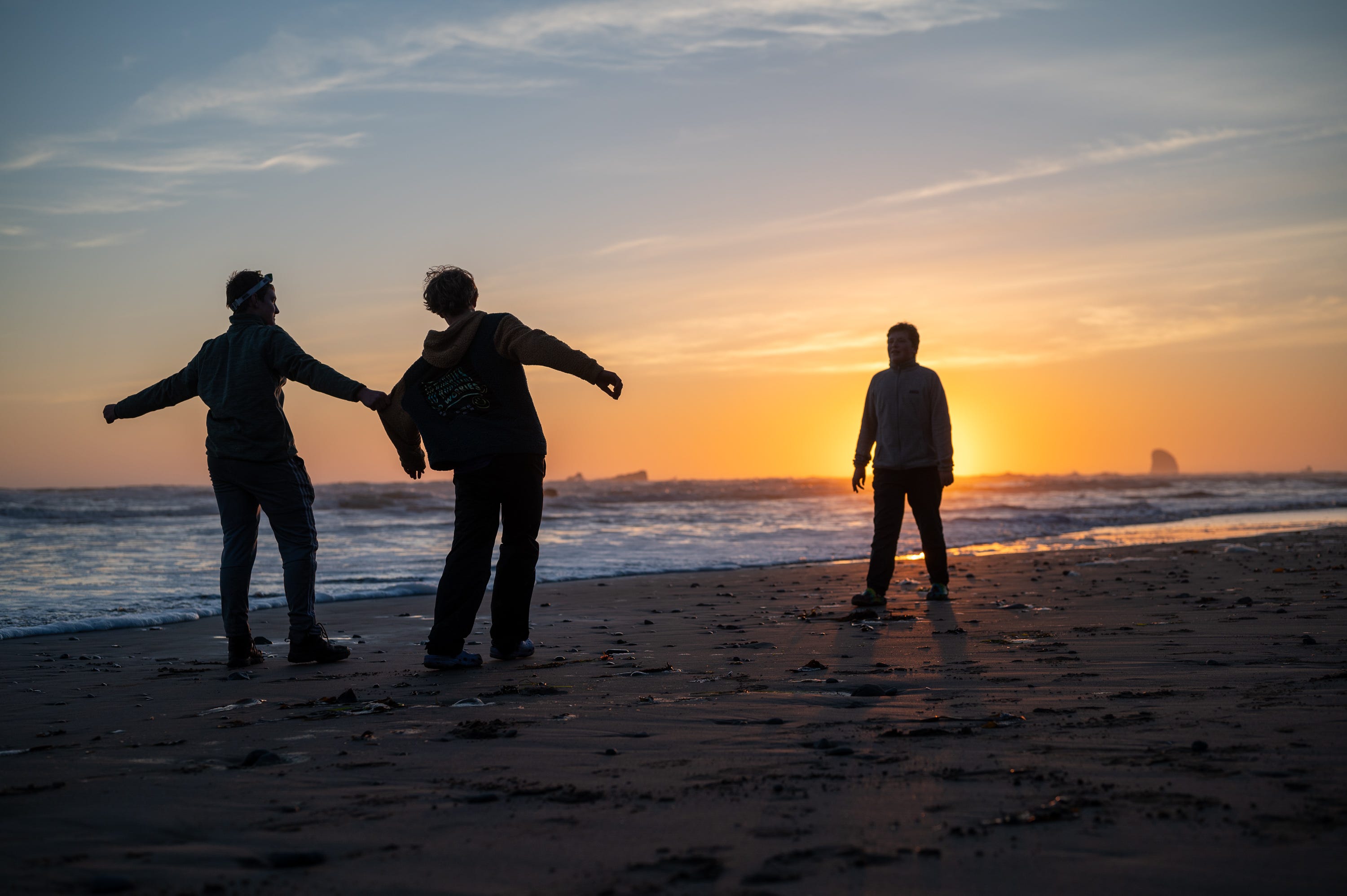
Nature is the best teacher. That’s what I attribute much of my own development to, and it’s also my philosophy when I take kids into the wilderness. Sure, I can share my expertise; I can say, “this is the best way to stake out a tent,” or “you should really eat a good meal, or you’ll be hungry later,” or “you’d better drain the noodles now.” But young teenagers aren’t known for being the best listeners. Stubbornness, on the other hand — they have plenty of that.
In the world of outdoor education, you’ll often hear the term “natural consequences.” It’s a simple idea: if it’s raining, and you choose not to put on your jacket, you will get wet. Eventually, the moisture will seep through your clothes and into your boots, and you’ll spend the rest of the trip soggy and cold. No human authority figure has enforced consequences on you; the world itself has — and you can’t argue with a rainstorm.
This is the opposite of civilization, where young people’s experiences are defined by stultifying rules. Take school, for example. Here in the United States, the school system exists mainly to produce workers to fuel the economy. Grades separate out those with the combination of traits—intelligence (defined in the most culturally blinkered and capitalist terms) and obedience—that make them suitable to be the next managers. Those who fail will make up the poor and working class. Punitive measures and the brutal, relentless school-to-prison pipeline enforce and inculcate white supremacy.
Welcome to Biocentric, a newsletter about sustainability, overshoot, greenwashing, and resistance. It’s written by Max Wilbert, the co-author of Bright Green Lies: How the Environmental Movement Lost Its Way and What We Can Do About It and co-founder of Protect Thacker Pass.
If you want to follow, you can subscribe for free. In return for supporting my activism, paid subscribers receive access to occasional private posts containing behind-the-scenes reports and unreleased drafts.
It’s the Prussian educational model, barely modified in the last 250 years.
Industrial schooling also deepens the damage caused by abuse, homelessness, and neglect. Children in distress, far from receiving the love and care and attention that they need, are expected to sit still, shut up, and play nicely. The school system’s academic framework not only fails to serve these kids; it makes everything worse. Bullying, social competition, stigmatization, criminalization, and social cliques that sometimes mature into full-blown xenophobia are the inevitable results of a framework designed for one purpose: jobs.
I’m all for reform. Small improvements are meaningful where they can be made. My 10th grade journalism teacher kept me—and countless others—thinking critically with his brialliant lessons on how advertising and mass media manipulates thought to encourage racism, nationalism, warmongering, consumerism, and objectification. There were a few other bright spots, too — islands of sanity in an ocean of conformity.
But by itself, reform is never enough. The school system isn’t broken; it’s functioning exactly as it was meant to. Liberalism’s incessant focus on education as the solution to social problems channels endless streams of idealistic young people into the school system, where they are almost inevitably broken by endless bureaucracy and 50-hour work weeks.
I’ve been told that in Mohawk culture, children are treated as “miniature adults,” and are expected to learn mainly through participation in the activities of the community. Real learning comes from being embedded in a functional community engaging in the tasks of survival and self-governance—not from being trapped in a box.
This is taken so seriously that children remained beyond the barricades during the Oka standoff near Montreal in 1990, standing with the warrior societies as the Canadian military flexed its colonial muscle to stifle indigenous sovereignty. We can learn from this level of commitment to teaching children things that have real value, and exposing them to the real world.
In outdoor education, we begin to approach this level of maturity in how we treat children. Sympathetic adults can’t always bail you out, but the trick is to manage natural consequences and strike a balance to help children develop. A trip leader can’t take care of every single kid, all of the time. It’s impossible, and they wouldn’t learn anything. Nor can we just ignore the kids and let them fend for themselves. They’re not ready — although a Mig’maw friend of mine tells of leaving his young son alone in the mountains for days and returning to find him healthy and happy, eating venison from a deer he had hunted. Children from within civiilization haven’t had that kind of preparation.
Instead, we need to let them experience natural consequences but mitigate the harm. The worst outcome would be for a kid to have a horrible experience and never want to go into the natural world again. So we trip leaders build fires to dry out socks and boots. We stake out the tents again after the kids have gone to bed so they don’t wake up in a puddle. We make sure to keep extra food so that picky eater can have a bar or two for a snack. And when the sun comes out after a rainy morning, we toss the plan out the window and say “packs off, we’re taking a break.”
The best instincts of kids come out in the woods. After a few days, the cliques start to disappear. They start to relate to each other better. Once they realize no one will take care of things for them, they become more adept at taking care of themselves. They figure out who is the strongest hiker, and who is struggling, and redistribute gear to be a little fairer (maybe with some grumbling). Their sense of adventure increases, as they get curious about the view from the top of the mountain or the frog croaking in the wetland. They start to manage their own risk-taking to balance fun and excitement, rather than just rebelling against rules arbitrarily (but no, you still can’t throw large sticks at each other’s face, and here’s why).
I grew up in the woods, spending a good portion of my childhood on the wilderness beaches of the Pacific Northwest. And I’m convinced that experience has had a profound influence on who I am. It’s changed the way I experience the world. For example, sometimes it’s just going to rain. All you can do is zip up, hunker down, and get through it. After experiencing this a number of times, you realize there’s no sense wallowing in self-pity. Nature doesn’t care that you’re wet and cold. So you learn to get meditative, make the best of your situation, find joy and laughter and humility in the situation, and get through it.
Here’s the thing: the sun always comes back out again. You can always make a fire to get warm—provided you’ve prepared for that, and practiced the right skillset. There will come a time to dry out your gear and just relax. It may take a while, but it will come.
If nature is the greatest teacher, Earth is the greatest classroom. The lessons that the land itself can teach are endless. On the glacieated mountains, we witness glaciers melting up close and walk the moraines left behind. We pass Hoary marmots gathering food for winter and a black bear digging for roots in a meadow. On the coast, we discuss the plastic pollution washing up from boats crossing the ocean, and call out a warning to watch out where you step: “slug!” In the subalpine forests, we talk about succession and ecology, and discuss the history of the region and the impacts of development projects. Each trail and every landscape is a master class in physical education, in erosion and hydrology, in sustainability and ecology, in leadership and group decision making.
Issues happen in the woods. Falls, concussions, scrapes, bruises, cuts. Interpersonal drama. Storms. Rogue waves. Gear failures. Mud. Sickness. Car problems. Getting lost. Running low on food. I’ve led wilderness trips for 21 years now and I’ve seen it all. And the thing is, life outside the wilderness is the same. We get through these issues together, by preparing, by learning, by cooperating. By working with the flow of nature, not against it. And sometimes you just need to ask for help. That’s ok.
In wilderness survival, instructors talk about a triangle of survival. One side is skills, the other side is equipment, and the base is mindset. Mindset is the foundation upon which everything in life is built. This is why outdoor education influences everything else in a person’s life: because mindset is the fundamental skill, and mindset transfers to everything.
Life is hard. It is also sublimely beautiful. This is the wonderful, contradictory world these kids are growing up in — and spending time in nature is the best way to grow up.
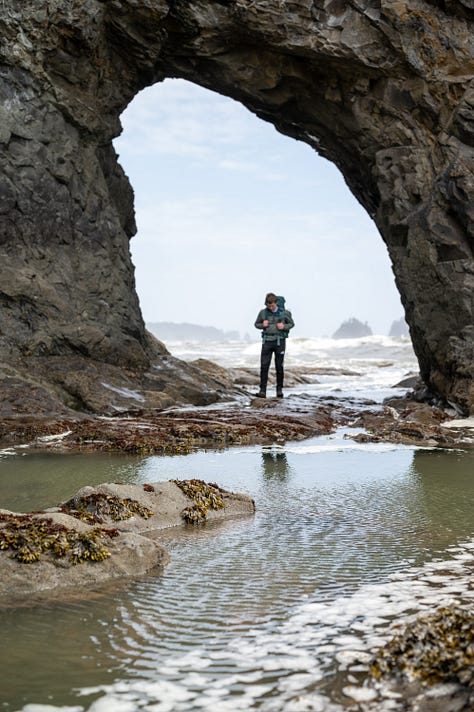
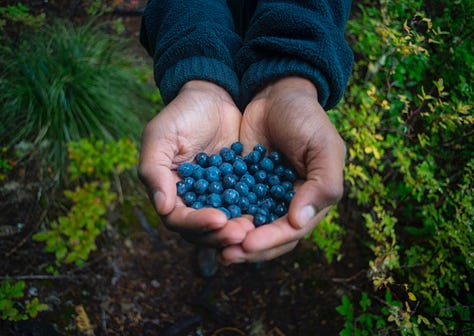
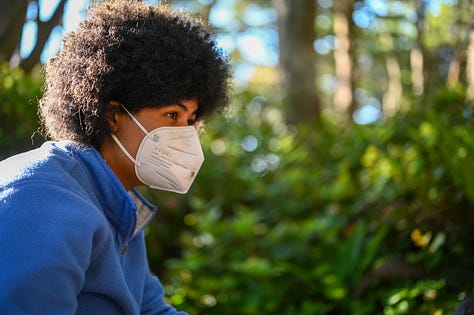
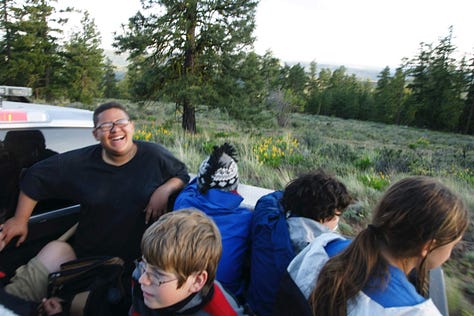
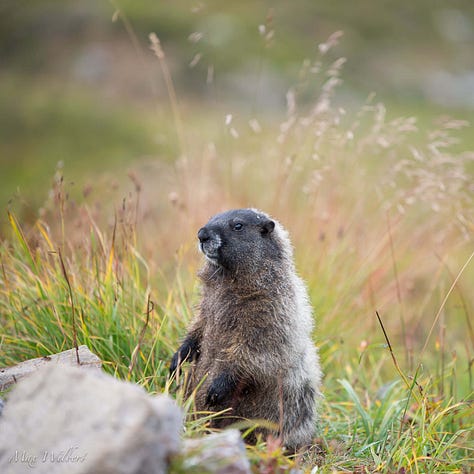
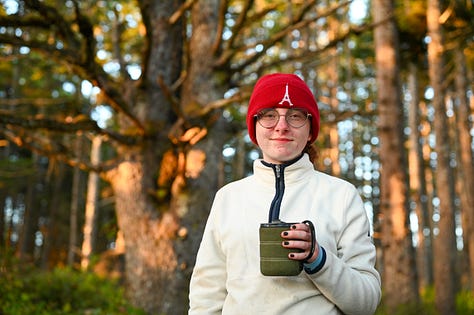
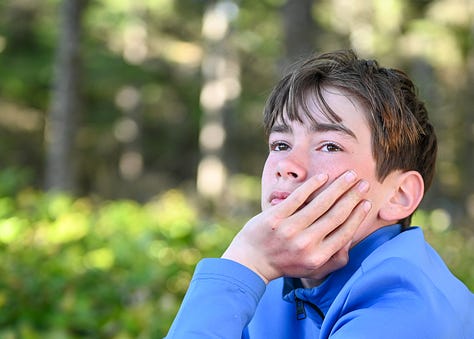
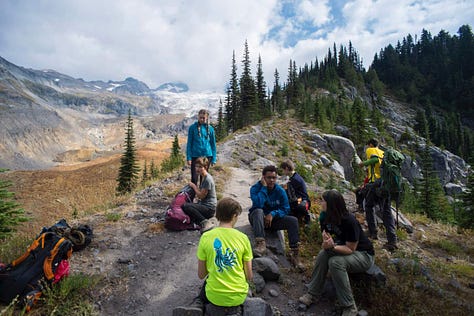
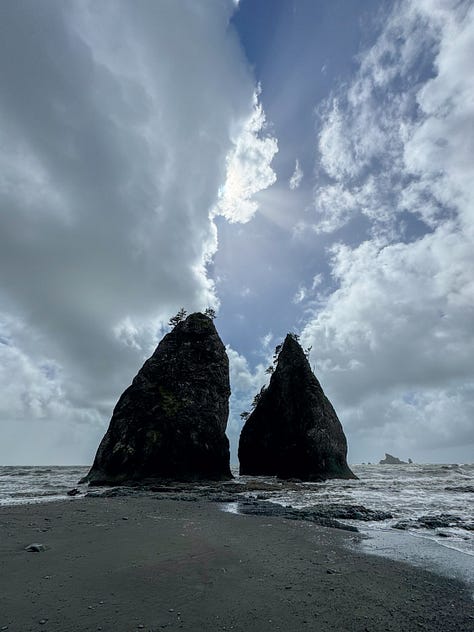
Postscript:
About a decade ago, I lived in Salt Lake City. Utah is a beautiful place. Home to Arches, Zion and Canyonlands National Parks, as well as world-famous skiing (for now; average late winter snowpack has already declined 15-30% across the west due to global warming), tourism is big business in Utah - worth $12 billion annually.
Around that time, a friend of mine worked as an intern in the newly established Utah State Office of Outdoor Recreation. Funding for the Office was up for renewal in the right-wing, pro-extraction State legislature. The legislators agreed to fund the Office — but struck funding for youth outdoors programs.
The arguement is simple: when kids spend time in nature, they fall in love, and when people love nature, they will defend it. In his book 'The Fallacy of Wildlife Conservation,' John Livingston wrote:
“On the basis of some experience in conservation affairs, I am at last persuaded that mere argument as such is entirely worthless. Argument, it seems to me, is never going to help wildlife. It rarely has, and there is little to persuade me that it ever will, appreciably...I believe that wildlife preservation is entirely dependent on individual human experience.”





Love this Max! Keep up the great work :)
Thank you, Max. Today is my 4-year old's second day of school. He's never been dropped off anywhere with anyone besides family until yesterday (although it wasn't a "drop-off"). I have several friends who homeschool their children, and although I considered this a viable option for the first several years of my son's life, I have decided to do it this way, gently, with a Montessori program down the street from us and see how it all goes. It's very difficult because I am also extremely critical of education, vaccines, and just the idea of school. I see it as an arm of a grotesquely dysfunctional society, stratified upside down with crazy priorities in place. If I chose homeschool, I'd be essentially mimicking an imaginary "village" that is not at all in place. I'd be supported by my son's dad and other mother's who are already stretched thin, and whom many I struggle to relate to due to different class backgrounds. I wouldn't have the bandwidth to write, engage the larger community, do activism, etc, which I think is invaluable for my son to see modeled for him. I want him to see his mother engaging the world beyond our little home. Although many lovely souls are doing homeschool, the interpersonal realities of groups of mother's I've experienced to be like an adult version of the sorority's I avoided in college. This isn't talked about and is also something I'm particularly sensitive to. The "group think" and competitive "supermom" antics can feel oppressive.
May we live again with our young, elders, dying, newborns, mothers, fathers, grand-parents, cousins, non-blood related, child-free, initiated teenagers, and all the Earth communities in co-creation, regeneration, and peace. May there be true community and collaboration for our days with Earth. It will never be a utopia, but it can get a hell of a lot better than this!